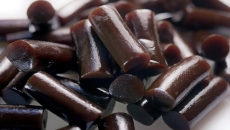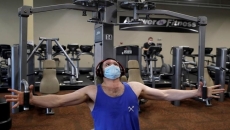Are you looking for the right way to lose body fat and keep it off? If so, keep reading. I will provide a quick and sustainable fat-loss recipe.
When people seek a quick fix, they often end up on a crash diet that is bound to fail. These restrictive diets frequently lead to frustration and a cycle of binge eating. The result? Not only does the lost body fat return, but often, more is gained because the metabolism has slowed down and adapted to the low-calorie intake.
This is why I advocate for creating healthy exercise and nutrition habits. By adopting this approach, you can achieve long-term results. What is my strategy for sustainable fat loss? Check out these five ways.
Weight Training
Weight training is essential for anyone looking to lose body fat properly. It increases lean muscle mass, burns fat, boosts metabolic rate, and strengthens joints, tendons, and ligaments. Training with weights 2-4 times a week is optimal for most people. There is no single best training split, but here are some general guidelines: research indicates that muscle tension and progressive overload are key principles for sustained lean muscle growth. In simple terms, this means feeling the burn during the exercises and changing a variable each week. This could involve adjusting the number of reps, sets, or the amount of weight used. Lastly, aim for 10-20 sets per muscle group to optimize your results!
Create a Calorie Deficit
To lose weight, establishing a healthy calorie deficit is vital. You can accomplish this by reducing your calorie intake, increasing your physical activity, or combining both. How large should the deficit be? Aiming for a 200-500 calorie deficit daily is ideal for effective results. Focus on reducing calories from fats and carbohydrates, rather than protein, to prevent muscle loss during your calorie deficit (more on this later).
Cardio Through Steps
As a society, we have increasingly become sedentary due to specific jobs, lifestyles, Netflix, and other factors. It's important to counteract this by incorporating activities like walking and staying active.
Walking is a form of cardio that utilizes fat as fuel, allowing you to burn fat while being low-impact and avoiding soreness the next day. Naturally, the next question you might have is how many steps I should take in a day. Aim for about 8000-10000 steps.
In addition to fat burning, walking offers numerous benefits. It improves cardiovascular health, enhances mood by releasing endorphins, and helps maintain joint flexibility and mobility. Unlike intense HIIT workouts, which can leave you exhausted and immobile for the rest of the day, walking is not as demanding and can lead to higher caloric output.
Optimize Your Protein Intake
Protein plays a crucial role in a fat-loss diet. It increases calorie burn, promotes satiety, supports workout recovery, and helps maintain muscle mass during a calorie deficit. So, how much protein should you aim for each day? A good target is about 0.73 grams of protein per pound of body weight. For instance, if you weigh 150 pounds, you should consume around 110 grams of protein daily.
Increase Water Intake
Water is an often underrated component of fat loss. It aids in appetite regulation, is calorie-free, improves workout performance, boosts metabolism, and helps with water retention. Daily water requirements differ for men and women: men should aim for about 3.7 litres per day, while women should aim for 2.7 litres per day.
All in all, when looking to lose body fat, following these steps is crucial, and it is the recipe you need. That said, how do you know you are making progress? I recommend using tools beyond the scale to measure your results. Why? Because solely relying on the scale won't give you a complete picture. Instead, take measurements and before-and-after pictures. Additionally, pay attention to how your clothes fit. This doesn't mean you shouldn't use the scale at all, but don't let it be your only method of tracking results. Otherwise, you might not see how far you've truly come.







